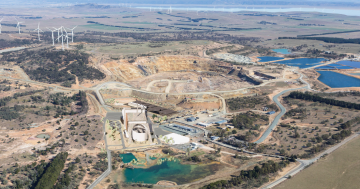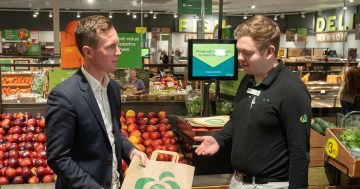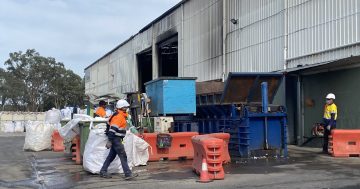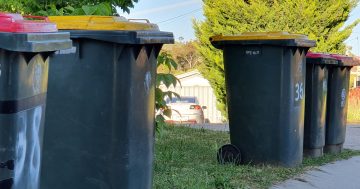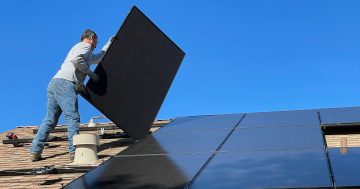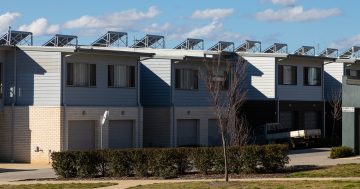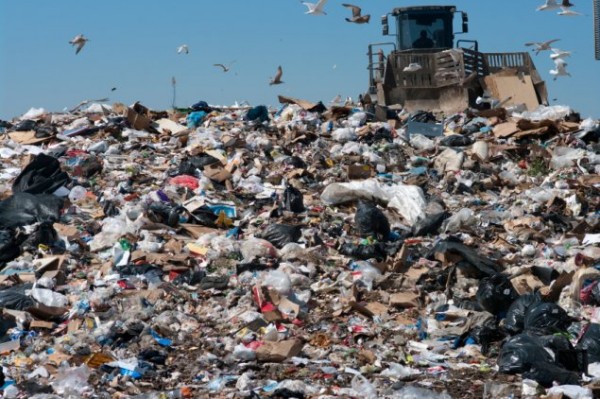
Some waste-to-energy treatment methods are highly problematic from an environmental point of view.
The ACT Government recently opened consultation on a waste-to-energy strategy. It wants to know whether it can treat the ACT’s waste to convert it to energy. It wants to know which methods of doing so, if any, are acceptable.
Waste-to-energy is a surprisingly complicated area. The spectrum of waste-to-energy technologies ranges from ‘hot’, destructive processes such as incineration and pyrolysis, to ‘cool’, more organic processes that create valuable, reusable by-products. These include composting and anaerobic digestion.
As you might expect, some waste-to-energy treatment methods are highly problematic from an environmental point of view. Fortunately, there are also good, environmentally friendly waste treatment options available that will help us to reuse waste and resources in a sound and sustainable way.
The first principles of waste management are to minimise the waste we actually create and to maximise reuse and recycling. Ideally, all the resources we use would stay in the system – that is, they’d be reused for their highest value, rather than be discarded in landfill, destroyed, or ‘downcycled’ to low-value products (for example, turning glass into road base).
Incinerating waste is contrary to these principles. Waste incineration is energy intensive and destroys materials that we should be seeking to reuse. Remember also that the ACT has already contracted to get 100 per cent of its electricity from genuine renewable sources: solar farms and windfarms. We don’t need to create electricity by burning waste.
Incineration is a process of convenience that sacrifices sustainability. The ACT Greens oppose incineration. In fact, we don’t even think the ACT Government should be entertaining the idea.
Governments can understandably be attracted to the ‘magic’ of incineration. It sure sounds convenient: all our waste disappears (literally in a puff of smoke… and ash, and other emissions), and the process generates some electricity. The Federal Liberal Government recently developed a renewed interest in incineration, piqued by China’s refusal to continue accepting imported waste from Australia and other countries. Without China accepting our waste, the Government is hoping there is a new way it can make waste disappear.
Of course, there is no magic bullet. Incineration costs us. Damaging our environment, our amenity and our air quality costs us all dearly in the end. And making waste apparently disappear is a mere Pyrrhic victory. It is not a viable long-term strategy for managing the earth’s resources and curbing our growing over-consumption.
Large-scale incineration is already being touted in the ACT. Recently, a private company proposed a waste incineration facility in Fyshwick. The ACT Greens challenged this proposal, concerned especially by the potential environmental impacts, and motivated by our goal of ensuring Canberra’s approach to waste and recycling is environmentally sound. Many people in the local community also opposed this proposal, and it’s been abandoned for now.
The ACT Greens are here to ensure the Government doesn’t sell out its environmental credentials in exchange for some deal that might initially look attractive, but will cost us all in the long run. But we also seek to advance solutions. We don’t ignore the fact we still need to find ways to responsibly treat the waste we create as a society. It’s important we get this right.
Storing waste in landfills is expensive and uses a lot of space. The extent to which we reuse and recycle also determines how many of the planet’s diminishing resources we consume, and the amount of greenhouse gases we release in the process.
A top priority should be diverting organic materials from landfill. This is one of our most problematic areas of waste because when organic waste breaks down in landfill it releases methane, a potent greenhouse gas, which contributes to global warming. The Greens support the expansion of our incipient green bin program so that it can also collect food waste from the residential sector. We also support programs to collect organic waste from the commercial sector, like cafes and restaurants. Once collected, this organic material needs to be processed in viable and appropriate waste-to-energy systems.
These waste-to-energy systems should be ‘non-thermal’ waste treatment technologies such as anaerobic digestion and large-scale composting. These processes not only divert organic waste from landfill (avoiding the creation of methane), but they can create useful products such as biogas (used for energy), and organic soil enrichers. Incredible environmental benefits can be made just from improving soils. These technologies are also simpler, relatively well proven, and most likely more acceptable to local communities.
There are of course issues to consider with these ‘non-thermal’ treatments too. They need to be sized and sited appropriately. The feedstock also needs to be appropriate – that is, they should process materials that would otherwise go to ACT landfill, such as Canberra’s household and commercial organics. We don’t want to set up an ever-hungry machine that is fed resources that could be better used elsewhere.
These organic waste treatment options provide a promising, positive way for us to start addressing Canberra’s waste and recycling challenges. Beyond that, we need to encourage more local reuse and recycling, including through local businesses. And there is much more to do in cooperation with our Federal colleagues, including product stewardship schemes, and the elimination of single-use plastics.
In the short term, the Greens encourage the ACT community to get involved in this important waste-to-energy discussion and to support positive, environmentally sound technologies. It’s time to focus on developing healthy recycling industries and sustainable waste technologies, and making use of the ‘waste’ otherwise bound for our landfill.
Get involved in this important waste-to-energy discussion and support positive, environmentally sound technologies via the Your Say survey, community information sessions and focus groups.
Shane Rattenbury is the ACT Greens Spokesperson for Waste.












